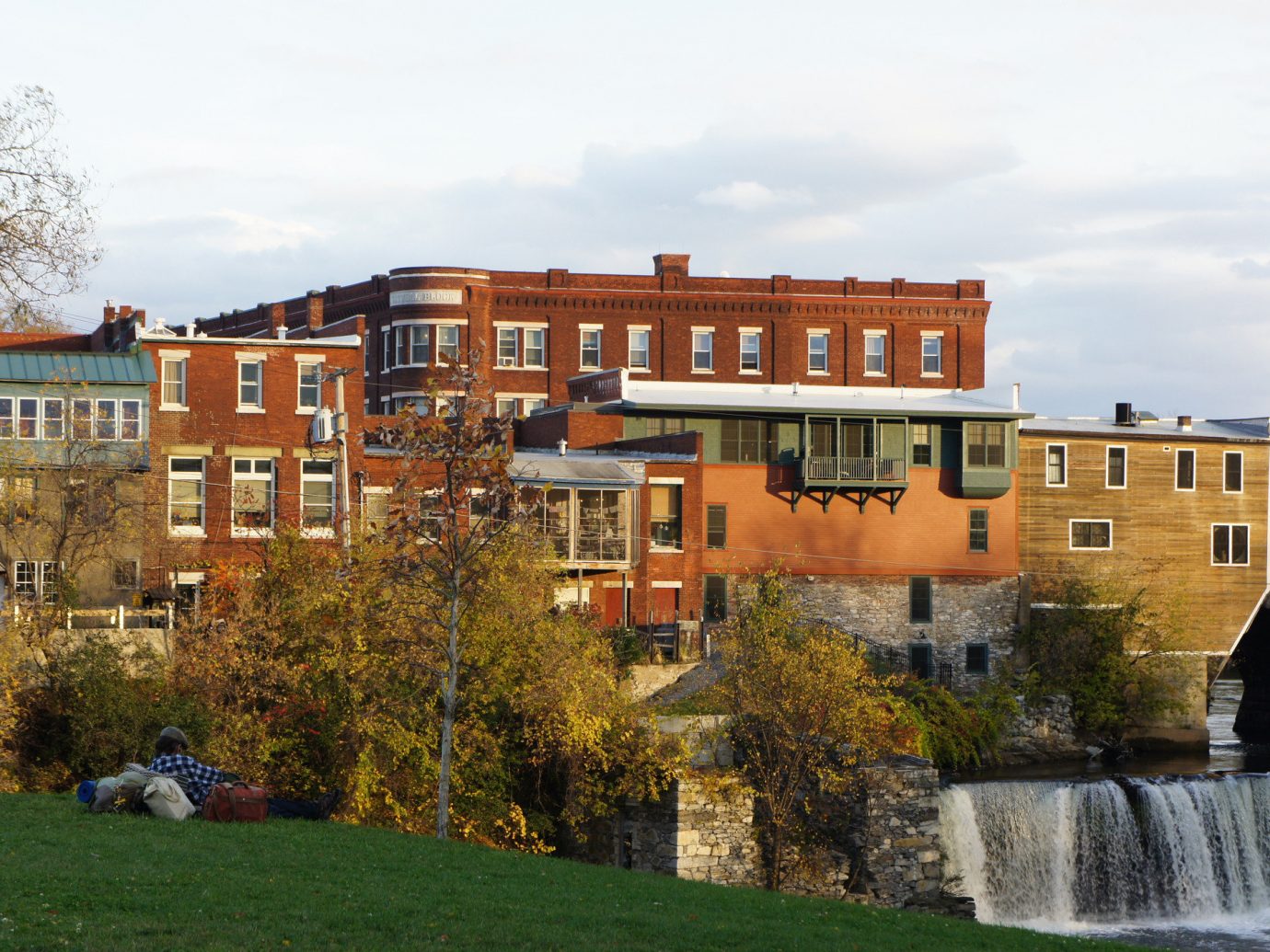There’s lower than a 12 months on the clock till Vermont’s first adult-use hashish dispensaries are set to open their doorways, and greater than 30 communities have now opted in for retail gross sales.
Hashish advocates in at the least a dozen extra municipalities have been petitioning to get an opt-in vote on their native ballots this 12 months. However lately, one other type of marketing campaign has additionally sprouted: A push to encourage cities and cities to start out their very own hashish management commissions.
The concept behind establishing native hashish management commissions is to provide cities and cities a say. However in some states, native management provisions have been criticized as cumbersome and discriminatory, contributing to a sluggish authorized roll-out and, in excessive instances, corrupt practices by municipal officials.

From the angle of Dave Silberman, a Middlebury legal professional who makes a speciality of hashish enterprise legislation, native management in different states “has largely been a catastrophe.”
He pointed to Massachusetts for example. Municipalities within the Bay State should negotiate “host neighborhood agreements” with candidates for hashish licenses, which permit cities and cities to gather as much as 3 p.c of a enterprise’ revenues in “neighborhood influence charges.” However license-seekers claim they’re being overcharged, with little oversight of how communities are utilizing the funds.
In the meantime, in California, Silberman mentioned the patchwork of native rules has made it almost inconceivable to interrupt into the market with out enormous quantities of capital. Based on the Santa Rosa Press Democrat, about two-thirds of California cities don’t permit gross sales or cultivation of hashish.
“Vermont type of knew this stepping into, and that’s why you see very weak native management provisions in Act 164,” mentioned Silberman, who can be the excessive bailiff in Addison County. “Act 164 does require municipalities to choose in to permit retail gross sales, however Act 164 explicitly forbids neighborhood host agreements, and it solely has the opt-in for retail, so not for different license varieties. So it was actually an try and strike a fragile political steadiness.”
“I’m involved that cities may — both purposely or inadvertently — exceed their precise authorized authority and attempt to use zoning to push hashish companies, whether or not retail or in any other case, out of city.”
— Dave Silberman, Vermont Lawyer
Because the legislation stands in Vermont, cities and cities can — however aren’t required to — set up native hashish management commissions to challenge and administer native licenses. These commissions would have the ability to situation native approval on compliance with the neighborhood’s zoning bylaws, in addition to ordinances regulating indicators or public nuisances.
Establishing a neighborhood fee doesn’t essentially give municipalities extra regulatory energy, Silberman mentioned, nevertheless it does create one other enforcement mechanism apart from issuing tickets for violating any such ordinance.

However as a result of native boards and committees are sometimes stuffed by volunteers with various ranges of understanding of state rules, Silberman’s fear is that these commissions could not take a constant strategy to their duties.
“I’m involved that cities may — both purposely or inadvertently — exceed their precise authorized authority and attempt to use zoning to push hashish companies, whether or not retail or in any other case, out of city,” Silberman mentioned.
In Massachusetts, such zoning disputes have made their solution to the state’s high court, together with the case of a dispensary that was sued by a neighboring enterprise after changing from a nonprofit medical dispensary to a for-profit retail operation.
The abutter argued the dispensary shouldn’t be allowed to open as a result of city zoning bylaws required hashish companies to function as nonprofits, however the Massachusetts Supreme Judicial Court docket dominated unanimously that the state legislation preempted the city bylaws.
Steven Hoffman, chairman of the Massachusetts Cannabis Control Commission, informed Heady he respects the custom of native management and believes it’s “crucial” that cities and cities have a say in how their native trade develops. He additionally acknowledges that there have been well-documented points with the roll-out and mentioned different states ought to begin figuring out their kinks sooner quite than later.
“The much less room there may be for interpretation, the much less room there may be for type of taking part in video games and the higher off I feel all people is.” – Steve Hoffman, Massachusetts Hashish Management Board Chairman
His recommendation to regulators is to put out the native approval course of intimately and explicitly outline what entity or company has jurisdiction over native hashish management commissions. For instance, he mentioned, any state-level social fairness provisions ought to be mandated for municipalities as nicely, if cities and cities aren’t required to provide social fairness candidates the identical precedence promised by the state.
“The much less room there may be for interpretation, the much less room there may be for type of taking part in video games and the higher off I feel all people is,” Hoffman mentioned. “So, the extra specific the laws may be each about what’s allowed and the method by which these agreements are granted to potential candidates, I feel the much less room for interpretation and judgment, the higher.”

Vermont Cannabis Control Board Member Julie Hulburd mentioned the state discovered loads from Massachusetts, which is partly why Vermont’s hashish legislation particularly prohibits cities and cities from creating particular circumstances or guidelines for hashish companies, or utilizing their zoning or ordinance energy “in a means that may have the impact of prohibiting the operation of hashish institutions.”
She famous that the board lately launched guidance for municipalities outlining their native regulatory powers. The board can be internet hosting a networking series for social equity and economic empowerment applicants, which is able to characteristic a dialogue with municipal and regional planning officers this Thursday.
“That is form of new for municipalities — this can be a new trade for them. They’re making an attempt to determine the best way to apply what at the moment exists to one thing that may be a model new subject for them,” Hulburd mentioned. “So I’d assume that there’s a studying curve, and attempt to strategy your native authorities with form of ‘Let’s study this collectively.’”
In Holloway’s view, “there must be a present of accountability and duty from the city to do their due diligence to ensure that they’re mitigating dangers.”
Prevention-focused organizations such because the Windham County Prevention Partnership — a gaggle of substance use prevention coalitions within the southeastern a part of the state — are already campaigning for communities to start out their very own management commissions.
Based on Cassandra Holloway, director of Constructing a Constructive Group, the partnership wish to see native commissions advise choose boards and metropolis councils on cannabis-related points reminiscent of creating buffer zones inside a sure distance of colleges or neighborhood facilities. (The CCB has already set buffer zones at 500 feet of walking distance from schools, however communities have the power to scale back this distance or develop it to as much as 1,000 ft.)

In Holloway’s view, “there must be a present of accountability and duty from the city to do their due diligence to ensure that they’re mitigating dangers, and that they’re addressing considerations and that they’re placing protecting components in place.”
In a survey distributed by the partnership earlier than Brattleboro’s opt-in vote in 2021, about 66 p.c of respondents mentioned they’d no considerations in any respect about retail hashish being bought on the town. Of the 171 individuals who did choose considerations from a listing in a subsequent query, about half had been involved about youth having extra entry to hashish than earlier than.
However latest analysis doesn’t assist these considerations. A examine published by the Journal of the American Medical Association in September, which examined information collected by means of the Youth Threat Conduct Survey between 1993 and 2017, discovered “little proof” of retail or medical marijuana legal guidelines encouraging youth hashish use.
Equally, a federal report by the National Center for Education Statistics discovered “no measurable distinction” from 2009 to 2019 within the proportion of scholars in grades 9-12 who reported consuming hashish at the least as soon as previously 30 days.
“There are just a few cities who’re actively taking a look at revising their zoning ordinances. And in these cities, I’d urge of us who’re curious about having hashish institutions to get entangled
on the native stage.” – Silberman
And in Colorado, the place authorized dispensaries have been working since 2014, youth hashish use “has not considerably modified since legalization,” a state report found, although youth who use hashish at the moment are extra doubtless to make use of vaporizers than they had been previously.
Hoffman famous that for hashish retailers, one good thing about native management is the possibility to type a constructive relationship with the host neighborhood. And it helps if native governing our bodies really feel they will train some management over the trade, quite than have it imposed on them.
“I feel it’s higher for any type of enterprise to be welcomed right into a city, to really feel like they’re a part of the enterprise neighborhood in that city,” he mentioned.
He and Silberman supplied the identical steering in relation to limiting the unintended penalties of native management: Get began now.
“There are just a few cities who’re actively taking a look at revising their zoning ordinances. And in these cities, I’d urge of us who’re curious about having hashish institutions to get entangled on the native stage, and to do it proactively,” Silberman mentioned.
“As a result of it’s simpler to unravel an issue upfront than it’s later.”
















